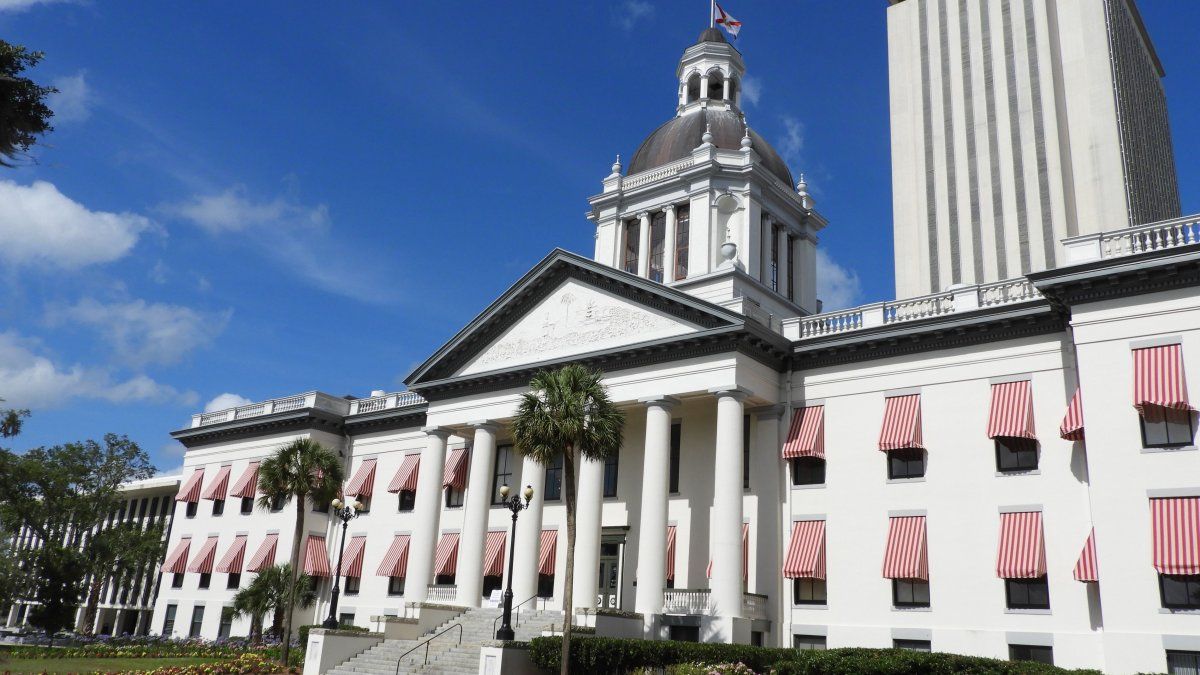However, Senator Boyd noted during the bill’s only committee hearing that rate reductions “would take 18 months and longer.”
The bill includes major legal reforms and anti-fraud measures to reduce frivolous litigation that drives up costs for insurance companies and policyholders, and improves security requirements for condominiums to protect them from events like the Champlain Towers South collapse in Surfside, Florida, occurred on June 24.
“With this legislation, we are addressing the challenges facing Florida’s property insurance market in a comprehensive manner, balancing costs and protections for consumers, while adding reasonable safeguards so insurers can address frivolous litigation and fraudulent claims that raise everyone’s rates,” Senator Boyd said.
“One of the most important parts of this legislation is updating roof policies, to ensure a clearer understanding between homeowners and insurance companies about roof repair, coverage and replacement costs. We’re protecting homeowners from being foreclosed on when a roof is less than 15 years old, or when an inspection shows that an older roof still has plenty of life left in it. We updated the building code to protect homeowners against unnecessary and costly roof replacements that, even from an insurance claim, impact everyone’s premiums.”
“Across the state, Floridians are feeling the burden of increasingly expensive homeowners insurance premiums. To provide relief as quickly as possible, this legislation improves insurers’ access to the reinsurance program. The proposal states that insurers participating in the program in 2022 must pass on savings to consumers in a rate filing by June 30,” said Senate President Wilton Simpson.
“In addition, the bill provides grants, equal to 2 to 1, that will help homeowners harden their homes against storm damage. These improvements not only make homes safer for the families who live there, but because they reduce claims, insurance companies provide significant discounts to properties with these improvements.”
over the roofs
SB 2D gives homeowners the option of policies with ceiling deductibles. Allows insurers to require a separate roof deductible that cannot exceed 2% of the homeowner’s policy limits or 50% of roof replacement costs, whichever is less. Members who select a ceiling deductible must receive a premium credit or discount. Said deductible does not apply to a total loss of the main structure caused by a covered peril; or to a loss caused by a hurricane, or as a result of a falling tree or other hazard that damages the roof and punctures the roof deck; or, a roof loss requiring repair of less than 50% of the roof.
new options
For its part, SB 4D creates a legal exception to the Florida Building Code so that roofs that are damaged by more than 25%, but already comply with the Florida Building Code of 2007 or a later code, can be repaired instead of having to replace them.
renovation
Under SB 2D, insurers cannot refuse to write or renew policies on homes with roofs that are less than 15 years old, because of the age of the roof. It also cannot be refused with roofs older than 15 years, if an inspection shows five or more years of useful life remaining.
subsidies
The SB 2D initiative expands the Program My Safe Florida Home, including hurricane mitigation inspections and grants to renovate single-family homes worth no more than $500,000. The idea is to make these improvements affordable for more Florida homeowners. The grants will award two dollars of funds for every dollar spent by the homeowner. Applicants can receive up to $10,000 in program funds.
Reinsurance and transfer of savings to policies
The bill authorizes $2 billion for the new Reinsurance Program to Help Policyholders (RAP, Reinsurance to Assist Policyholders) aimed at insurers. This new program allows insurers to obtain reimbursement for hurricane losses below the retention of the Florida Hurricane Catastrophe Fund. This year, the companies that participate in said program have until June 30 to present the rates that reflect the reduction of the savings obtained with the RAP. Insurers that defer the use of RAP for 2023 must present the rates with the reductions before May 1 of the following year.
More transparency
SB 2D requires insurers to notify policyholders that they may request a copy of any itemized estimate of the amount of loss determined by the adjuster. Insurers have seven days to send the detailed budget to the policyholder. In addition, the bill requires insurers to provide a reasonable explanation, in writing, for the payment, or the total or partial denial of a claim.
The initiative also states that if the claim payment is less than specified in the estimate, the insurer must provide a reasonable explanation in writing for the difference.
In addition, the bill directs the Office of Insurance Regulation (OIR) to make available to the public data detailing the number of policies, the amount of premiums, the number of cancellations and other data of each insurer, as long as they are not trade secrets.
Insurance liability
Several Florida property insurers have gone bankrupt in the last year. As a result, tens of thousands of policies have been cancelled. Timely analysis and reporting are key to understanding how to prevent future failures. SB 2D requires a root cause analysis of an insurer’s failures within four months of the Department of Financial Services being designated as the lead in the liquidation process.
In addition, the bill strengthens the OIR’s regulatory oversight by creating a new insurance investigations unit to increase regulatory oversight. On the other hand, it requires the OIR to improve control over an insurer’s solvency, rates, proposed contracts, underwriting rules, market practices, claims handling, consumer complaints, litigation practices .
Reduce frivolous litigation
SB 2D codifies that attorney fee multipliers are only awarded in exceptional circumstances. Clarifies when a bad faith claim can arise and prohibits the ability to transfer the right to receive attorneys’ fees in property insurance litigation. Aimed at curbing unscrupulous roofing claims, the bill improves on SB 76 passed in 2021, prohibiting contractors from making a written solicitation that encourages consumers to file a roof damage claim unless the offering provides certain notices.
Improve security requirements in condominiums
With SB 4, senators did not overlook condominium safety. The initiative requires condominium and cooperative association buildings three stories or more in height to have a structural integrity inspection by an architect or engineer upon reaching 30 years of age and every 10 years thereafter. For buildings located within three miles of the coast, the inspection would be every 25 years and every 10 years thereafter. The results of the inspection report must be provided to local building officials. -building-, associations and owners of units.
The bill requires that, every 10 years, condominium associations and cooperatives use the reserves to perform a “structural integrity study” on buildings three stories or higher. The study must include the roof, load-bearing walls, floor, foundation, fire protection systems, plumbing and any element with deferred maintenance or replacement cost greater than $10,000. As of July 1, 2024, condominium associations and cooperatives are prohibited from using reserves for expenses outside of their purposes. They also may not waive reserves or reduce reserve funding for certain structural components of the property.
@menendezpryce
–


